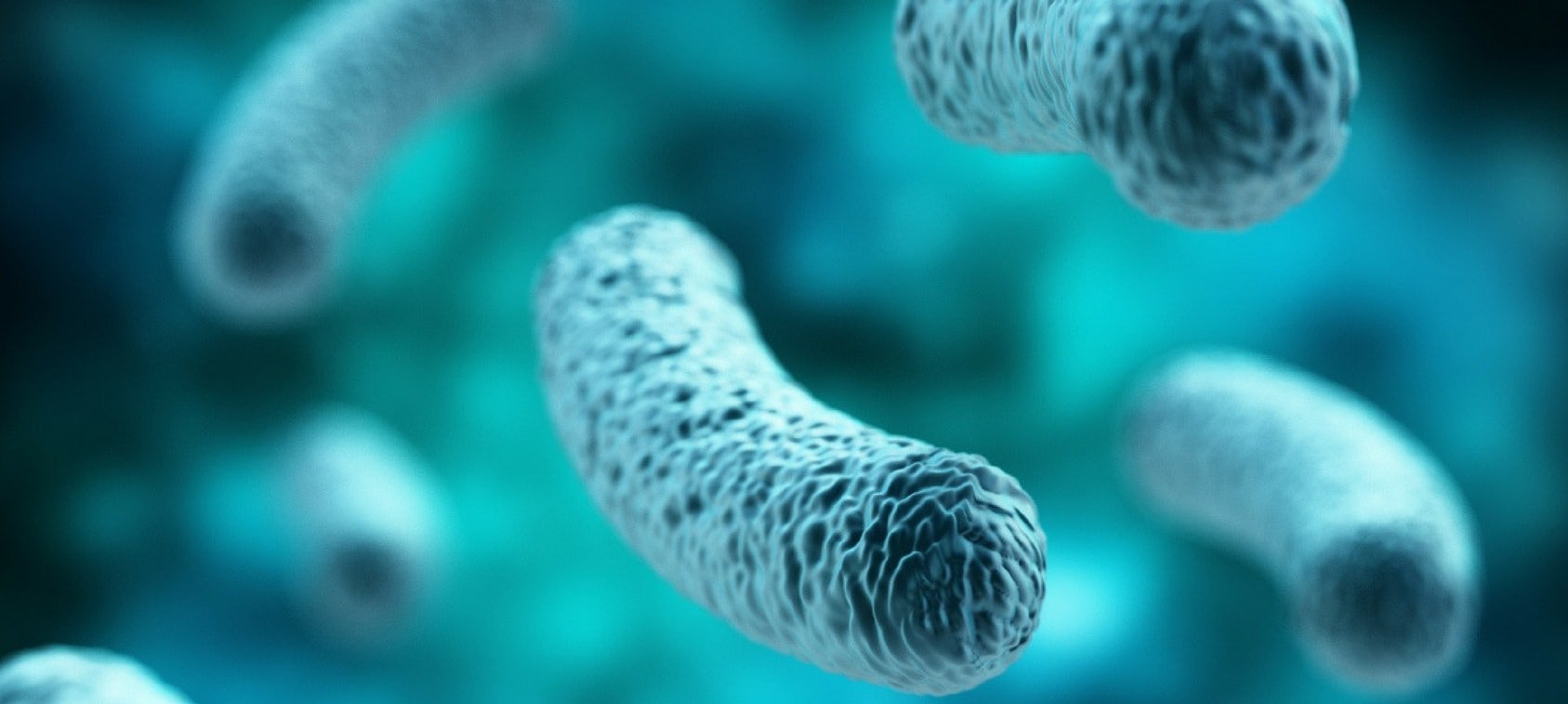
Not all bacteria are bad. This is a common misconception among people who aren’t familiar with the benefits of probiotics. Probiotics are the “good” bacteria that our bodies need to stay healthy and balanced. They are often associated with digestive health but, truthfully, good bacteria live everywhere on the human body and affect your overall health. For every human cell we have, there can be up to 10 microbes, most of which are bacteria that reside in our intestines and make up our gut microbiome.
How Do Probiotics Work?
If we don’t have enough good bacteria to combat the bad bacteria in our body, the bad will wreak havoc on our digestive systems and overall health. There are several reasons why someone may lose their good bacteria. Sometimes the reason is our diet; a diet low in prebiotic fiber or probiotic foods, or over-eating sugar and simple carbohydrates allows bad bacteria to flourish.
One of the most common reasons is the use of antibiotics when we are sick. Antibiotics are meant to kill bacteria that are making us sick, but they target ALL bacteria, good and bad. It is very important that our body has a healthy balance of good bacteria, or else we could suffer from diarrhea, yeast infections, or excessive gas and bloating.
This is where the benefits of probiotics come into play. Probiotics replenish and stabilize our good bacteria, and reduce bad bacteria so they don’t wreak havoc. Taking probiotics every day will help to ensure that our microbiome stays healthy and balanced.
10 Benefits of Probiotics
Grossed out yet? You shouldn’t be! Probiotics help us in SO many ways. For example, did you know that there is a strong connection between your mental health and the health of your gut bacteria? This means that if our guts aren’t happy, neither are we! The benefits of probiotics are endless. They can help with…
- Digestive Issues/IBS
This is probably the most obvious one. Probiotics are known for treating all kinds of digestive issues including diarrhea and excessive gas and bloating. Probiotics fix the balance of gut bacteria you need for more functional digestion. No one has time for diarrhea or abdominal pain. - Immunity & Colds/Flu
Supporting the beneficial bacteria in our guts is crucial for immune function. Beneficial bacteria minimize toxic byproducts of bad bacteria in our bowels, which in turn help to block pathogens and other toxins from being reabsorbed into our bodies…and making us very, very sick! - Weight Loss
The bacteria in our guts influence how we break down foods and absorb nutrients, so a healthy gut means a healthier metabolism. In addition, gut bacteria can influence our food cravings, making us want ice cream over some healthy fruit. - Oral Health
Our intestines aren’t the only place that bacteria populate, they’re in our mouths too. Probiotics can reduce oral diseases, throat infections, tooth decay, AND bad breath. If mints aren’t doing the trick, try a probiotic lozenge or gum! - Mood
Why do we think certain moods cause “butterflies” in our stomachs? The connection between our brains and our guts is evident. If our gut bacteria aren’t balanced, our brains won’t be either. Probiotics can aid in treating depression, anxiety, anger, and even ADHD. - Brain Function
We find ourselves having trouble with focus and concentration on our day-to-day tasks. Well, our gastrointestinal tract is linked to our brain by the vagus nerve, so for our brains to work properly, so must our digestive systems. A healthy digestive system provides us with the nutrients needed for healthy brain function. - Healthy Skin
When our digestive systems aren’t working very efficiently, wastes can be expelled in other ways, such as through our skin. Probiotics can help eliminate that problem so these toxins are removed through our gastrointestinal tracts rather than through our pores, causing acne and other skin issues. - Allergies
When our immune system overreacts to an allergen, we suffer from allergies. Both allergies and the immune system have been connected to digestive issues and unbalanced gut bacteria. Probiotics may help reduce allergy symptoms. A benefit of probiotics seen in infants is improved eczema symptoms when mothers take probiotics during pregnancy. - Heart Health
Probiotic bacteria produce vitamins that your heart needs to stay strong and healthy as well as keep our arteries clear. After we eat food, the bacteria living in our gut produces chemicals that are absorbed into our bloodstream. These chemicals support the health of our blood vessels and heart. - Urinary and Vaginal Health
Beneficial bacteria also reside in the urinary tract and vagina. Without them, excessive pathogenic bacteria and yeast will grow, causing all kinds of uncomfortable issues we just do NOT want to deal with. Taking probiotics can keep the pH balance of the urinary tract and vagina slightly acidic so we don’t have to worry about that.
What Types of Probiotics Should I Take?
There are many different species of probiotics, and each of them is unique in the way that it benefits our bodies. Some have more overarching advantages, while others are more specific in their support.
Here are 4 types of probiotic genus:
- Lactobacillus
When we see an “L.” in front of a type of probiotic strain, we know it is from the Lactobacillus genus. This genus is home to many species that are best known for treating and preventing a very wide variety of diseases and conditions, most notably digestive, urinary, vaginal, and skin-related issues. It also helps improve the digestion of dairy. Humans naturally have lactobacilli in their digestive, urinary, and genital systems. Fermented foods also contain these bacteria, but our safest bet would be to take a supplement.
Species: L. acidophilus, L. bulgaricus, L. rhamnosus, L. planetarium, L. reuteri, L. salvarius, L. casei, L. johnsonii, L. gasseri. - Bifidobacterium
Probiotic strains with a “B.” are most likely from the Bifidobacterium genus and they mostly populate the colon/large intestine. They are the heroes of the digestive system, improving IBS symptoms like abdominal discomfort, bloating, urgency, and digestive syndromes. If we’re having any of these gross, uncomfortable issues, bifidobacteria are the way to go.
Strains: B. bifidum, B. lactis, B. longum, B. breve, B. infantis, B. thermophilum, B. pseudologum - Bacillus
This genus also uses the abbreviation “B.” but is less common than bifidobacteria. Species in the Bacillus genus are good for overall digestion and vaginal health, as they colonize in the small intestine.
Strain: B. coaglins - Streptoccocus
Streptococci live in our skin and on our mucous membranes inside the body. They boost our immunity, our lactose tolerance, and support healthy teeth, gums, and breath.
Strains: S. salivarius K12, S. salivarius M18
Now we can see the importance of probiotics and how they can help us and our families live happier, healthier lives. Though probiotic foods are great additions to your diet, adding daily probiotic supplements to your routine will really make the difference in your health. It’s never too late or too early to start!


